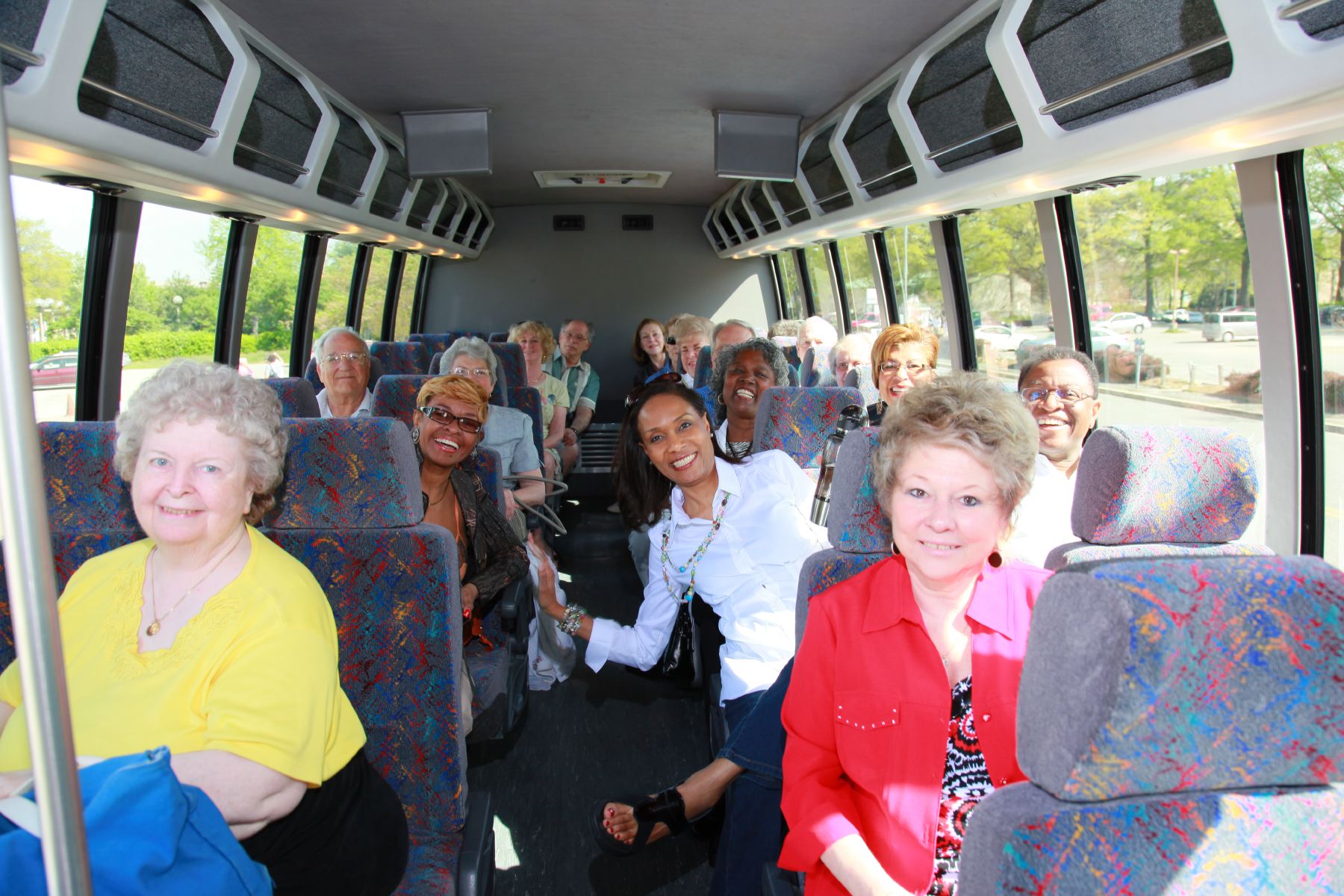Senior travel tour groups are experiencing a surge in popularity, driven by an aging population with increased disposable income and a desire for enriching travel experiences. This burgeoning market presents unique opportunities and challenges for tour operators, requiring a keen understanding of the specific needs and preferences of older travelers. From accessible itineraries and comfortable accommodations to engaging activities and expert guidance, successful operators are tailoring their services to meet the demands of this discerning clientele.
This report delves into the intricacies of the senior travel market, examining demographics, motivations, and the various types of tour groups available. We’ll explore effective marketing strategies, the role of technology in enhancing the travel experience, and analyze case studies of successful operators. Finally, we’ll look ahead to future trends and the innovations shaping the future of senior travel.
Tour Group Features and Services
Senior travel tour groups offer a comprehensive package designed to cater to the specific needs and preferences of older adults. These packages go beyond simple sightseeing, encompassing meticulous planning and personalized services to ensure a comfortable and enriching travel experience. The key elements consistently include transportation, accommodation, and guided excursions, but the level of service and included amenities can vary significantly between operators.
The core features typically offered include comfortable and accessible transportation, often involving private coaches or chartered flights, minimizing the physical strain of travel. Accommodation is generally in well-appointed hotels or resorts, often chosen for their accessibility features and proximity to key attractions. Guided excursions are a cornerstone of these tours, with knowledgeable guides providing historical context, cultural insights, and practical assistance.
In this topic, you find that steam profile background anime is very useful.
Many tours also incorporate additional services such as travel insurance, pre-booked activities, and assistance with luggage handling.
Pricing and Value Proposition Comparison
Choosing the right tour operator requires careful consideration of pricing and the overall value offered. The following table compares three hypothetical tour operators, highlighting variations in pricing and the included services. Note that actual pricing will vary based on destination, duration, and time of year.
| Tour Operator | Price (per person) | Included Services | Value Proposition |
|---|---|---|---|
| Silver Linings Tours | $3,500 | Transportation, Accommodation (3-star hotels), Guided Excursions (3 per day), Basic Travel Insurance | Budget-friendly option with a focus on essential services. |
| Golden Years Getaways | $5,000 | Transportation (First-class coach), Accommodation (4-star hotels), Guided Excursions (2 per day), Travel Insurance, Airport Transfers, Some Meals | Mid-range option balancing comfort and affordability. |
| Luxury Senior Escapes | $8,000 | Private Transportation, Accommodation (5-star hotels/resorts), Guided Excursions (1 per day, more bespoke), All Meals, Premium Travel Insurance, 24/7 Concierge Service | High-end option prioritizing luxury and personalized service. |
Unique Selling Points of Successful Senior Travel Tour Groups
Successful senior travel tour groups distinguish themselves through unique selling propositions that resonate with their target market. These USPs often go beyond the standard features, focusing on aspects that address the specific needs and desires of older travelers.
For example, some operators specialize in slow-paced itineraries with ample time for relaxation and exploration, while others focus on specific interests such as history, culture, or nature. Some may offer specialized medical assistance or accessible travel options for those with mobility challenges. Others may focus on creating a strong sense of community among travelers through social events and shared experiences.
Best Practices for Designing Senior-Friendly Itineraries
Designing itineraries that cater to the physical limitations and interests of senior travelers is crucial for a positive travel experience. Best practices include incorporating ample rest time, avoiding overly strenuous activities, and offering alternative options for those with mobility challenges. Careful consideration should be given to the pace of the itinerary, with shorter travel days and fewer activities scheduled.
Itineraries should also consider the interests and preferences of the target audience, offering a mix of activities that cater to diverse tastes. For instance, a tour might incorporate gentle walks alongside opportunities for rest and relaxation, such as afternoon tea or visits to museums.
Technology and Senior Travel
The silver tsunami is reshaping the travel industry, with technology playing a pivotal role in enhancing the senior travel experience. From streamlined booking processes to improved safety features, technological advancements are catering to the unique needs and preferences of older travelers, creating a more accessible and enjoyable travel experience.Technological advancements significantly improve the senior travel experience. Mobile applications offer a seamless and convenient way to manage all aspects of a trip.
Mobile App Functionality for Seniors
Many travel apps offer features specifically designed for senior travelers. These include large, easily readable fonts, simplified navigation, and voice-activated controls. Apps can handle everything from flight and accommodation bookings to real-time translation and local emergency contact information. For example, apps like TripAdvisor and Booking.com allow seniors to easily browse reviews, compare prices, and book accommodations with accessible features, while navigation apps like Google Maps provide clear, step-by-step directions, helpful for those with mobility challenges.
Furthermore, communication apps such as WhatsApp or Skype enable seniors to stay connected with family and friends back home, providing peace of mind during their travels.
Innovative Technologies Enhancing Accessibility and Safety
Tour operators are increasingly incorporating innovative technologies to improve accessibility and safety for senior travelers. GPS tracking devices, for instance, can provide real-time location information, offering peace of mind to both travelers and their loved ones. Wearable technology, such as smartwatches with fall detection capabilities, can alert emergency services in case of an accident. Furthermore, some hotels and resorts are investing in smart room technology, allowing seniors to control lighting, temperature, and entertainment systems with ease.
These advancements contribute to a more independent and secure travel experience for seniors.
Online Reviews and Testimonials’ Influence on Booking Decisions
Online reviews and testimonials have become a crucial factor influencing senior travelers’ booking decisions. Before booking a tour or accommodation, seniors often consult online platforms like TripAdvisor or Expedia to read reviews from other travelers, particularly those of a similar age. Positive reviews about accessibility features, staff assistance, and overall experience significantly impact their choices. The ability to read firsthand accounts of other seniors’ experiences provides valuable insights and helps them make informed decisions.
This reliance on peer reviews underscores the importance of transparent and accurate online information for tour operators.
Challenges and Opportunities in the Senior Travel Tech Market, Senior travel tour groups
While technology offers numerous advantages, challenges remain. Digital literacy gaps among some seniors can create barriers to adopting new technologies. Tour operators need to provide clear, user-friendly interfaces and offer assistance to those unfamiliar with technology. However, this presents a significant opportunity for businesses to develop tailored solutions and provide training to bridge this gap. Furthermore, data privacy and security concerns are paramount.
Tour operators must ensure the secure handling of sensitive personal information. The potential for personalized travel experiences, based on individual needs and preferences, represents a major opportunity for growth in this sector.
Future Trends in Senior Travel: Senior Travel Tour Groups

The senior travel market is experiencing a dynamic shift, moving beyond traditional sightseeing tours towards experiences that cater to evolving interests and lifestyles. This transformation presents both challenges and opportunities for tour operators, demanding innovation and adaptation to remain competitive. Emerging trends indicate a growing demand for personalized, active, and enriching travel experiences tailored specifically to the needs and desires of the modern senior traveler.
Several key factors are driving this evolution. Increased longevity and improved health among seniors translate to a larger and more active demographic with higher disposable incomes and a greater desire for exploration. Simultaneously, technological advancements are making travel more accessible and convenient, opening up new possibilities for independent and group travel alike.
Adventure Travel for Seniors
The stereotype of senior travel as leisurely cruises and bus tours is rapidly fading. Adventure travel, once considered the exclusive domain of younger generations, is increasingly attracting older travelers seeking physical and mental stimulation. This includes options such as guided hiking tours in national parks, multi-day cycling excursions through scenic landscapes, or kayaking expeditions along tranquil coastlines. These experiences provide a unique blend of physical activity, cultural immersion, and social interaction, catering to the active senior who desires a more engaging travel experience.
Tour operators are responding by offering tailored adventure packages with appropriate levels of difficulty and support, ensuring accessibility and safety for participants of all fitness levels. For example, a tour company might offer a “Gentle Hiking in the Rockies” tour, focusing on shorter, less strenuous trails with ample rest stops and optional activities for those who prefer a slower pace.
Specialized Interest Tours
Beyond adventure, senior travelers are increasingly seeking tours centered around specific passions and hobbies. This includes niche tours focused on photography, culinary arts, history, genealogy, wildlife viewing, and volunteer tourism. A photography tour might focus on capturing stunning landscapes in Iceland, while a culinary tour could explore the regional cuisines of Italy. These specialized tours offer a deeper level of engagement and provide opportunities for like-minded individuals to connect and share their interests.
The success of these tours highlights the growing importance of personalization in senior travel. For instance, a genealogy tour might involve tracing family history through archival research and site visits, appealing to those interested in their ancestral roots.
Adapting to Changing Demographics and Preferences
To remain competitive, tour operators must proactively adapt to these emerging trends. This involves investing in technology to enhance the booking process and provide personalized travel recommendations. It also requires developing diverse tour packages that cater to a wide range of interests and physical abilities. Furthermore, incorporating elements of wellness and mindfulness into tour itineraries can enhance the overall travel experience and attract a broader segment of senior travelers.
For example, a tour could incorporate daily yoga sessions or meditation retreats, promoting relaxation and rejuvenation.
A Hypothetical New Tour Group Concept: “Sustainable Seniors: Exploring Costa Rica”
This tour would cater to environmentally conscious seniors interested in experiencing the biodiversity of Costa Rica. It would involve visits to sustainable coffee plantations, rainforest lodges, and wildlife reserves, with opportunities for birdwatching, hiking, and interacting with local communities. The tour would emphasize eco-tourism practices, minimizing environmental impact and supporting local businesses. The itinerary would include moderate-level activities suitable for active seniors, with options for relaxation and personalized experiences.
The tour would also incorporate elements of cultural immersion, allowing participants to learn about Costa Rican traditions and engage with the local culture in a meaningful way. This concept addresses the growing demand for sustainable and responsible travel among senior travelers, highlighting the potential for growth in this niche market.
The senior travel market is dynamic and ripe with potential. By understanding the unique needs and desires of this demographic, tour operators can create exceptional travel experiences that cater to the specific requirements of older travelers. Through strategic marketing, innovative technology, and a focus on building trust, the industry can continue to thrive, providing unforgettable journeys for a growing segment of the population.
The key to success lies in adapting to emerging trends and consistently exceeding expectations in terms of comfort, safety, and enriching experiences.



